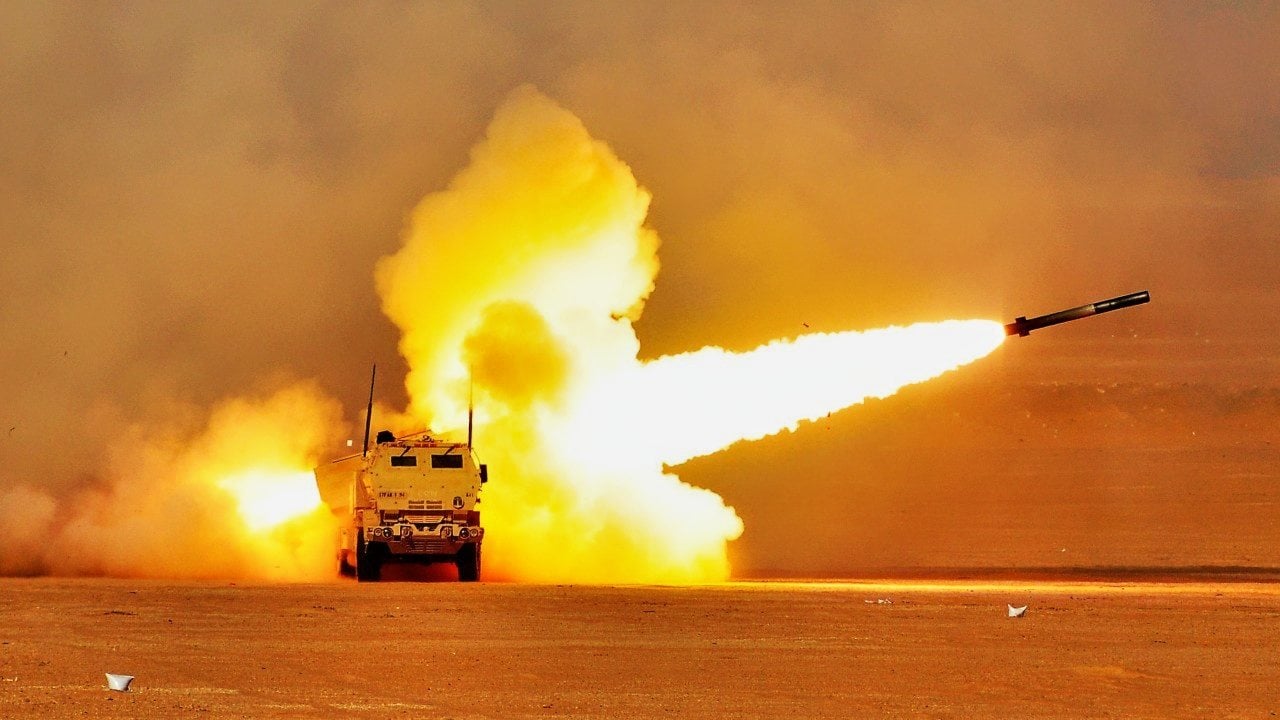5 Weapons Taiwan Needs to Resist an Invasion by China
Taiwan's survival, if China were to invade, may depend on transitioning from a traditional military model to a resilient, insurgent force capable of prolonged resistance.
Summary: As tensions escalate with China's threats to reunify Taiwan by force, the island's defense strategy is under scrutiny. Xi Jinping's statement in December 2023 hinted at possible invasion plans, raising concerns about Taiwan's preparedness. Taiwan's military purchases and strategy, focused on conventional warfare, may not suffice against China's might. Experts suggest Taiwan should pivot to insurgency tactics, including bolstering coastal defenses, developing hypersonic weapons, deploying massive numbers of drones, creating electromagnetic spectrum jammers, and distributing small arms widely among the population. With American Special Forces reportedly training Taiwanese civilians in guerilla warfare, the strategy emphasizes disrupting Chinese forces through asymmetric warfare, akin to the Vietcong's approach against the US. Taiwan's survival may depend on transitioning from a traditional military model to a resilient, insurgent force capable of prolonged resistance.
Taiwan's Guerrilla Gambit: Rethinking Defense Against China's Might
“The realization of the complete reunification with the motherland is an inevitable course of development, is righteous and what the people want. The motherland must and will be reunified.”
Those ominous words were spoken by China’s autocratic president-for-life, Xi Jinping, in December 2023. While some doubt that Xi is serious, or that he has a timeline in mind, others, like former Navy SEAL and Blackwater founder Erik Prince, believe that Xi will order an invasion of Taiwan either in the spring or fall of this year.
Should that occur, Taiwan will face the ultimate put-up-or-shut-up moment. Despite a special military relationship with the United States going back to the late 1970s, the question of whether Taiwan is prepared to resist a Chinese invasion is very much in question.
A year ago, when the former national security adviser Robert C. O’Brien went to Taiwan to be given an award by the government there for his tireless support of Taiwan’s cause, O’Brien ran afoul of the country’s population when he suggested that every Taiwanese citizen be given a firearm. In his estimation, an island nation with a population of 23 million people being given one AK-47 per citizen would be more than enough to deter a Chinese invasion.
Alas, Taiwan freaked out at the suggestion – even as the government in Taipei continues warning about the threats that Chinese revanchism poses to the island’s sovereignty.
What’s more, many of the systems that Taiwan has purchased for their military are the wrong platforms, meant to wage the wrong kind of war. The platforms they have are best used in a conventional war. And if Taiwan intends to fight a conventional war against China anytime soon, they will require the military intervention of American forces. It is unlikely that direct American military intervention will ever come, given current political constraints in the United States.
If Taiwan expects to have any chance at all, it must drop its obsession with building a miniature version of the US military – the world’s greatest conventional force – and be prepared to wage the mother of all insurgencies against a Chinese military that will undoubtedly conquer Taiwan.
Coastal Defense Batteries & Anti-Aircraft Defenses
In 2022, Taiwan was supposed to receive a series of Paladin self-propelled howitzer cannons from the United States that could have aided in the coastal defense of their island from any Chinese invasion. Ditto with High Mobility Artillery Rocket System (HIMARS). Sadly, the Ukraine War diverted that shipment of heavy weapons from Taiwan and placed it in the hands of Ukraine, where these systems were promptly destroyed by the Russians. After two years of waiting, the Pentagon says these cannons will likely be available sometime in 2027.

But Taiwan has industrial infrastructure of its own. It could easily manufacture the kinds of weapons systems their country would need to better resist a Chinese amphibious attack on the island.
Further, a distributed, networked, nationwide anti-aircraft defense system would be valuable. In 2023, Taiwan had plans to purchase the National Advanced Surface-to-Air Missile System 2 (NASAMS 2) from the United States. Of course, it is likely that their order was far more limited than what their island needs. Still, it’s a step in the right direction.
Hypersonic Weapons
With China leading the United States in hypersonic missile technology, Taiwan will need to rapidly develop its own hypersonic weapons capability. These weapons are very hard to shoot down and can be armed with a devastating array of explosives. Such weapons could be fired at incoming warships or could be deployed farther afield, at China’s mainland. Should China invade, the Taiwanese military will want the option to threaten the Chinese mainland with devastation even as China threatens the Taiwanese nation with destruction.
Massive Numbers of Drones
While Ukraine is losing its war with Russia, Ukrainian forces have done significant amounts of damage to Russian forces with their vast arsenal of unmanned aerial vehicles. These systems are cheap, easy to produce, simple to pilot, and can be replaced with wanton abandon. But it isn’t only UAVs that Taiwan should produce in massive numbers. Unmanned underwater vehicles should be built in large numbers, too.
China will deploy a large naval force to invade Taiwan. Hundreds or even thousands of kamikaze UUVs could be devastating to that incoming fleet, which would have to operate in the isolating quarters of the Taiwan Strait during an invasion.
Island-Spanning Electromagnetic Spectrum Jammers
China’s military is becoming increasingly reliant on systems that depend on the electromagnetic spectrum to operate. Any invasion of Taiwan will see China deploying such systems. For Taiwan to more adequately defend itself, it will need to degrade the EM spectrum and deny Chinese forces access to it. Ultimately, China plans on doing the same to Taiwanese forces, meaning that the entire area around Taiwan will likely become an electronic dead zone.
Once China’s forces have made it through whatever defenses Taiwan’s conventional forces have deployed, degrading the EM spectrum will be key for Taiwanese irregular combatants.
All that will matter is which side has better small arms tactics.
Small Arms—Lots and Lots and Lots of Them—Are Essential
News that the United States was permanently stationing elite units belonging to its Special Forces on the island democracy seemed to escape the notice of mainstream media in the West. Whether this was intentional or out of ignorance remains to be seen. Taiwan has gotten a bad rap for the population’s general ennui about their national defense, but there are numbers of Taiwanese civilians who recognize the threat and want to act accordingly. These elements of Taiwanese society should be encouraged and empowered.

In fact, many have already volunteered for Taiwan’s growing civil defense system. These irregular forces will need guidance and training in guerilla warfare tactics. The presence of American Special Forces – Green Berets, to be precise – likely means that the Americans are training cadres of Taiwanese civilians in irregular warfare for the time when Chinese forces overrun the island’s defenses. Caches of small arms (pistols, machine guns, and rifles) as well as other portable weapons will have to be strategically prepositioned at key points throughout the island for the resistance to operate effectively against Chinese occupiers.
Taiwan’s irregulars will have to blend in among the civilian population and engage in wanton and egregious acts of terrorism directed against the invaders – targeting key infrastructure and other soft targets to make life as miserable for the invaders as possible.
Essentially, the Taiwanese resistance will need to model themselves after the Vietcong rather than the South Vietnamese army.
Conclusion
In sum, Taiwan needs to be thinking less like the elephant and more like the mosquito. The mosquito is considered one of the deadliest insects on Earth. Spreading pestilence and misery wherever it goes, the cadre of U.S.-trained Taiwanese insurgents will need to engage in decisive pinprick strikes that drive Chinese occupiers mad.
Over time, such strikes will force the Chinese occupiers to behave more violently toward the local populace, encouraging wider levels of resistance, until the Chinese are simply driven off the island.
If Taiwan continues purchasing legacy systems from Western defense contractors, they will have a fabulous looking tin army that will fall quickly against a larger, better funded, and more robust Chinese invasion force. Insurgency is their only path forward. Taiwan will need systems to augment their coming guerilla war against China.
About the Author
Brandon J. Weichert, a National Interest national security analyst, is a former Congressional staffer and geopolitical analyst who is a contributor at The Washington Times, the Asia Times, and The-Pipeline. He is the author of Winning Space: How America Remains a Superpower, Biohacked: China’s Race to Control Life, and The Shadow War: Iran’s Quest for Supremacy. His next book, A Disaster of Our Own Making: How the West Lost Ukraine, is due October 22 from Encounter Books. Weichert can be followed via Twitter @WeTheBrandon.


